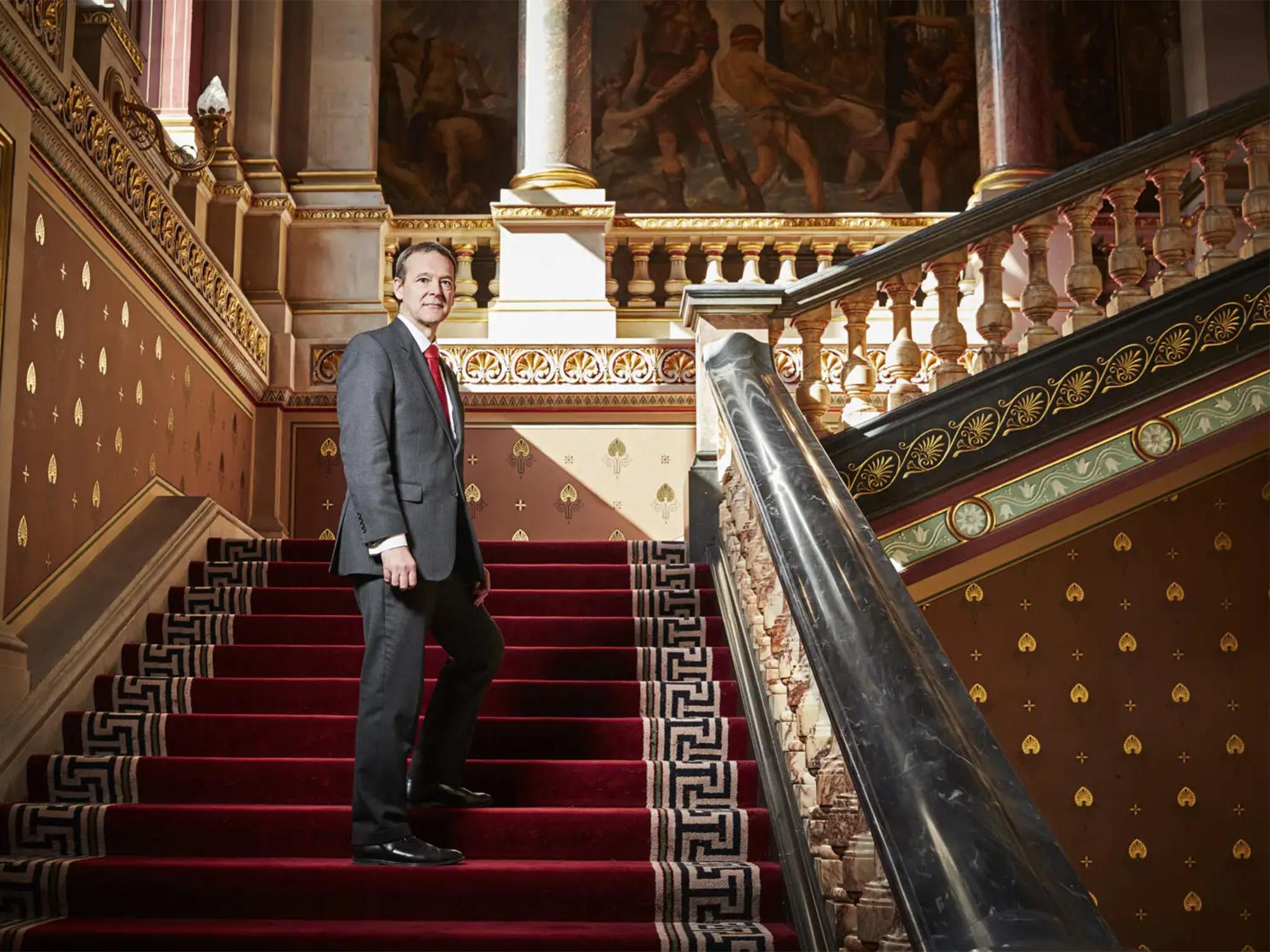Inside the Foreign Office, review: This documentary imitates life under the worst person ever to run it
For the entire time span covered in the first episode of this three-part series, staff were counting down to what they called Liberation Day from Boris Johnson

There is much to enjoy in the Sweeney Todd-style structure of Inside the Foreign Office (BBC2). After all, the audience knows from the beginning that the protagonist, in this case the foreign secretary Boris Johnson, will not be alive by the end of it.
This documentary wisely imitates what is well known to have been life inside the Foreign Office under the tenure of the worst person ever to run it – his civil servants quickly come to run this show entirely by themselves, just as they did their organisation.
For those who know what happens next, which is everyone, there are almost Shakespearean levels of dramatic irony in its opening scenes. Foreign Office staff are summoned to the grand Durbar Court to hear from the foreign secretary, a few days after the general election in which his government committed slow-motion harakiri, heralding his arrival with the kind of subtly underwhelming applause of which only the professionally polite are truly capable.
It is no secret that, for the entire timespan covered in the first episode of this three-part series, Foreign Office staff were counting down to what they themselves called “Liberation Day” from Boris Johnson, which came scarcely a year later when the country’s chief diplomat failed to turn up to host a summit in London for Western Balkan leaders who had flown in for the purpose.
The purpose of the programme is also made clear, right at the start. How do the country’s diplomats uphold Britain’s place in the world when its voters have voted to diminish it? How can Britain continue to exert its influence when, for example, it has chosen to leave the European Union and so no longer attend the regular meetings of all of Europe’s leaders? And, moreover, when it has chosen to be led in this task by a man once generously described by the comedian John Oliver as a shaved orangutan?
But his zookeepers do emerge with much credit. In one notable meeting, senior Foreign Office staff discuss how they might best exercise their leverage over a request from Russia to use British money to help rebuild Syria. Mercifully, Johnson scarcely gets a word in edgewise.
The opening episode heavily intimates at a greater role for the Foreign Office’s permanent secretary, Sir Simon McDonald, in next week’s instalment, though given the project would not have gone ahead without his say so, his closing comments are worth remembering. Diplomacy, he says, is about “making people feel they’ve been taken into your confidence, but, in the end, without actually telling them anything”.
A bit like House of Cards, the filmmaker Michael Waldman asks him: “You might say that, I couldn’t possibly comment. Is that what ministries are like?”
McDonald only says there is “less murder”. Which for now is at least literally true, if not figuratively.

Join our commenting forum
Join thought-provoking conversations, follow other Independent readers and see their replies
Comments
Bookmark popover
Removed from bookmarks